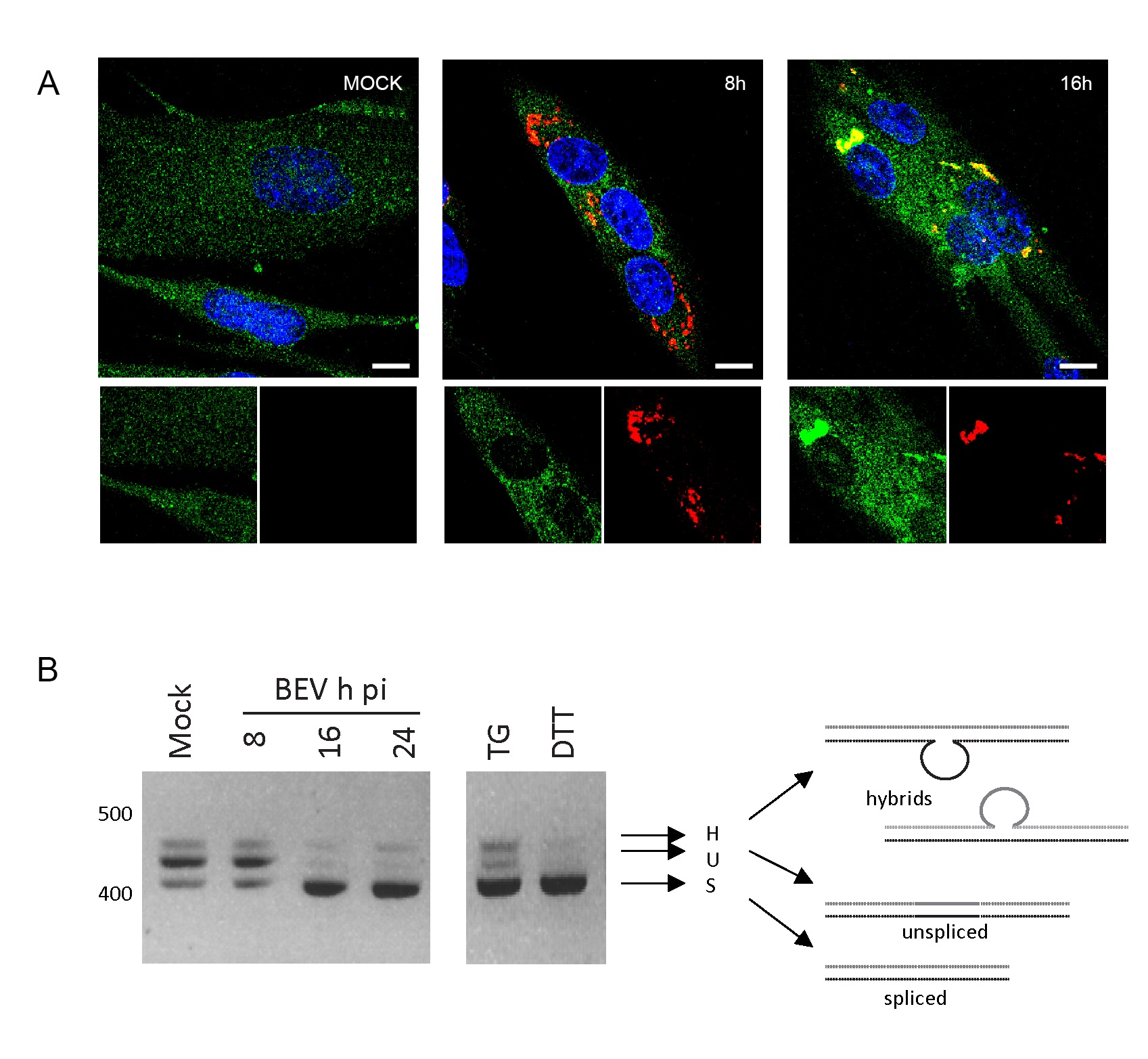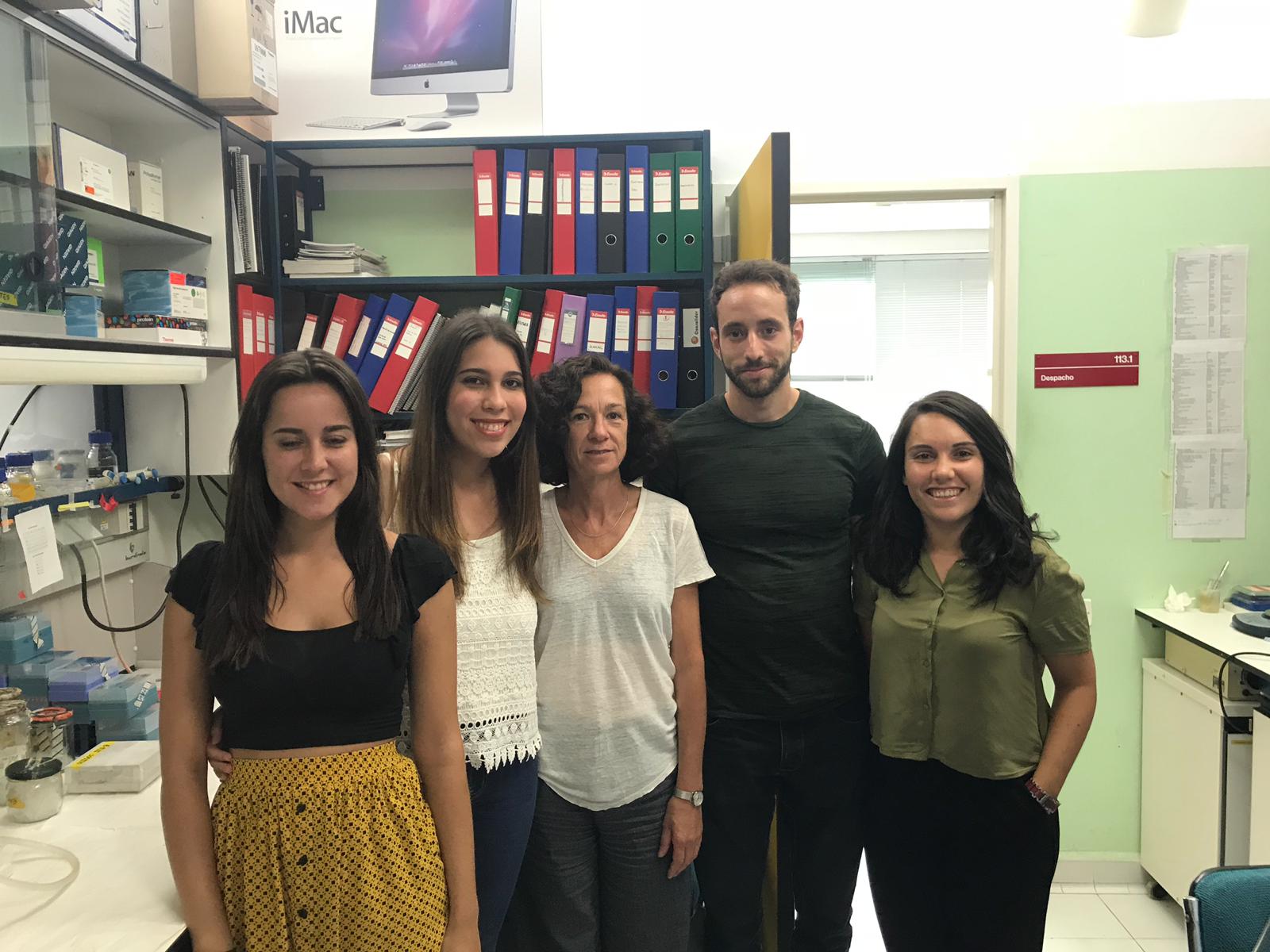Dolores Rodríguez
Group Leader
Fernando Almazán
Group Leader
Research summary
Our general objective is to study different biological aspects of the toroviruses, emergent viruses that are practically ignored despite they have the potentiality to infect and cause enteric diseases in different animal species and in man. They are enveloped viruses with a single-stranded RNA genome, which belong to the Coronaviridae (Nidovirales order). Four genotypes or species have been identified so far: equine torovirus (EqToV or BEV), bovine torovirus (BToV), porcine torovirus (PToV) and human torovirus (HToV).
Publications
Diaz-Beneitez, E., Cubas-Gaona, L.L., Candelas-Rivera, O., Benito-Zafra, A., Sánchez-Aparicio, M-T., Miorin, L., Rodríguez, J.F., García-Sastre, A. Rodríguez, D. Interaction between chicken TRIM25 and MDA5 and their role in mediated antiviral activity against IBDV infection. Frontiers in Microbiology 2022, 13:1068328.
Broto, L., Romero,N., Méndez, F., Diaz-Beneitez, et al. Type I Interferon acts as a major barrier to the establishment of infectious bursal disease virus (IBDV) persistent infection. J Virol 2021, 95 (5), e02017-20.
García-Murria, M.J., Duart, G., Grau, B., Diaz-Beneitez, E., et al. Viral Bcl2s’ transmembrane domain interact with host Bcl2 proteins to control cellular apoptosis. Nat Commun 2020 11, 6056.
Vidal, S., El Motiam, A., Seoane, R., et al. Regulation of the Ebola Virus VP24 Protein by SUMO. J Virol 2020 94, e01687-19.
Ávila-Pérez, G., Diaz-Beneitez, E., Cubas-Gaona, L.L., Nieves-molina, G., et al. Activation of the autophagy pathway by Torovirus infection is irrelevant for virus replication. PLoS ONE 2019. 14(7): e0219428.
Ávila-Pérez GF, Rejas MT, Rodríguez D. Ultrastructural characterization of membranous torovirus replication factories. Cell Microbiol 2016; 18: 1691–1708
Toroviruses are emergent viruses (belonging to Nidovirales Order) that cause enteric diseases in different species of domestic animals and could probably represent a zoonotic threat. They are highly distributed worldwide, and yet remain practically ignored. Over the years, our group has developed diagnostic tools allowing us to carry out epidemiological studies that revealed a high prevalence of porcine torovirus in Spanish farms. As it has been evidenced by the COVID-19 pandemic, it is of utmost importance studying new potential zoonotic pathogens like toroviruses. The knowledge acquired from these studies could contribute to adopt therapeutic or preventive measurements in the eventuality of a disease outbreak.
One of the main focuses of our research is the study of the virus-host interaction that would determine the outcome of the disease. During this period we demonstrated that the equine torovirus Berne virus (BEV), the prototype member of the Torovirus genus, induces autophagy at late times post-infection. We have also observed that BEV replication also induces ER stress at the time when selective autophagy is taking place, suggesting that the autophagy pathway is activated in response to the hefty accumulation of virus-encoded polypeptides during the late phase of BEV infection.
Also, we maintain a collaboration with Dr. Rodríguez (CNB) to characterise the potential relationship between the innate immune response and pathogenesis caused by infectious bursal disease virus (IBDV). Specifically, we have studied the role of the interferon pathway in acute and persistent IBDV infections. At present, we are involved in a project aimed at elucidating the relevance of defective viral genomes (DVGs) in the establishment of persistent infections by both, IBDV and torovirus.
In the context of the COVID-19 pandemic we have also collaborated with Drs. Montoliu and Fernández from CNB, and Dr. Moreno from the CABD (CSIC)/UPO in a project aimed at using the CRISPR-Cas technology to target coronavirus RNA genome.

Figure: BEV induces selective autophagy and ER stress. (A) Immunofluorescence analysis of mock- and BEV-infected cells showing the colocalization of the viral protease Mpro (red) and the cargo protein p62 (green) at late times pi (16h). Cell nuclei were stained with DAPI (blue). Enlarged representative areas showing the fluorescence corresponding to Mpro and p62 are shown in the lower panels. Scale bars, 10 μm. (B) Splicing of XBP-1 mRNA, analysed by RT-PCR, was observed in BEV-infected cells at 16 and 24hpi, as well as in cells treated thapsigargin (TG) or dithiothreitol (DTT) used as controls.









